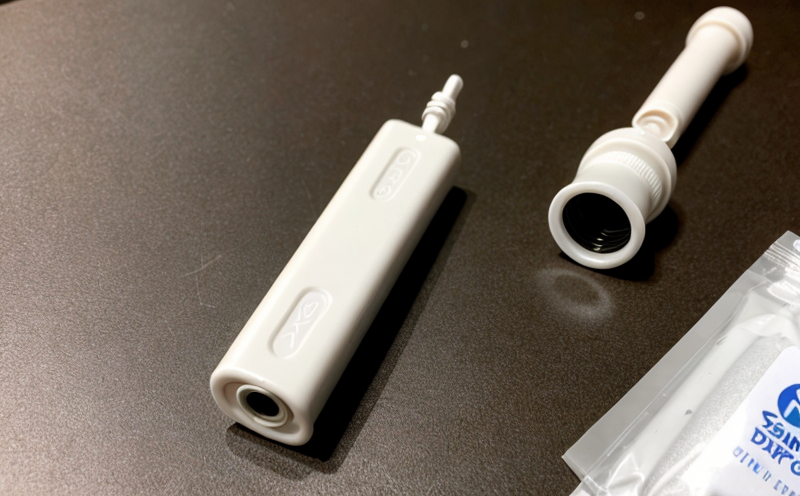Disposable Blood Collection Tube Integrity Testing
The integrity of disposable blood collection tubes is a critical aspect in ensuring accurate and reliable diagnostic results. This service focuses on testing the structural, mechanical, and chemical properties of these devices to ensure they meet stringent quality standards set by international guidelines.
Disposable blood collection tubes are single-use containers designed for collecting small quantities of blood samples, typically used in clinical settings such as hospitals, clinics, and diagnostic laboratories. The integrity of these devices is paramount because even minor defects can lead to sample contamination or leakage, affecting the accuracy of subsequent tests.
In this testing service, we employ a range of sophisticated equipment tailored for evaluating various aspects of tube integrity. These include pressure testers, thermal cycling machines, and leak detection systems. The tubes are subjected to multiple stress conditions that simulate real-world usage scenarios, from handling in transit to storage under varying temperature and humidity levels.
Our testing protocols adhere strictly to international standards such as ISO 10993-2 for biocompatibility assessments and ASTM F2756 for mechanical performance. By doing so, we ensure that the devices not only meet regulatory requirements but also perform reliably under expected conditions. This approach helps in minimizing errors during specimen collection and transportation, thereby enhancing diagnostic accuracy.
The testing process involves several key steps:
- Initial inspection of tubes for visible defects
- Pressure testing to check resistance against external forces
- Thermal cycling to assess stability under temperature fluctuations
- Leak detection to ensure no fluid leakage during use
The results of these tests are meticulously documented and reported, providing comprehensive insights into the performance characteristics of each batch. This detailed documentation is essential for quality assurance departments and regulatory bodies.
Applied Standards
| Standard | Description |
|---|---|
| ISO 10993-2 | This standard specifies the biological evaluation of medical devices, focusing on biocompatibility assessments. It ensures that the materials and substances used in the tubes do not cause adverse reactions. |
| ASTM F2756 | This test method evaluates the mechanical performance of plastic containers intended for the collection, transport, or storage of blood. It helps determine how well the tubes can withstand various stresses without compromising their integrity. |
Scope and Methodology
| Methodology | Description |
|---|---|
| Initial Visual Inspection | The tubes are inspected for any visible defects such as cracks, discoloration, or other signs of damage before further testing. |
| Pressure Testing | This involves subjecting the tubes to varying pressures to assess their resistance against external forces. This helps in identifying any weak points that could lead to failure during use. |
Quality and Reliability Assurance
- Meticulous documentation of all test parameters and results
- Continuous calibration of testing equipment to ensure accuracy
- Training of personnel on the latest testing techniques and protocols
- Ongoing review and updating of procedures based on feedback from clients and industry trends





